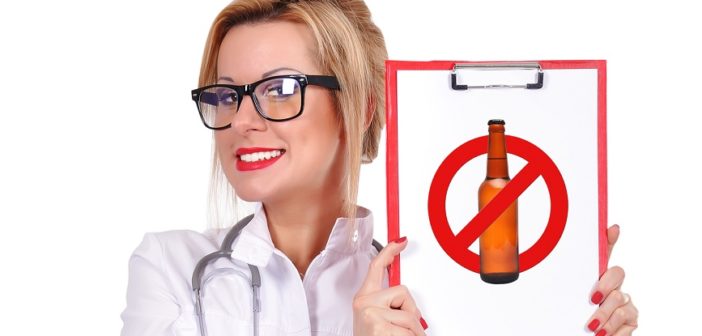This post was originally published on September 24, 2014.
Drinking problem or not, I have a very hard time believing that affixing a warning label to a bottle of booze is going to have any impact on consumption whatsoever. No one looks at liquor labels—even college kids who are new to the drinking game scan the aisles for familiar logos and affordable prices. Can we admit that no one is picking up a bottle of vodka to see if it’s wheat, barley or potato-based, let alone checking to see if there any risks involved with drinking it? That’s why the article in The Daily Mail about “Drink Responsibly” ads not being tough enough seems like a waste of virtual paper.
See, a study was conducted on magazine ads for alcohol between 2008 and 2010 and it showed that 87% included a message about drinking responsibility but didn’t define what responsible drinking actually was and 88% of those went heavy on promotion of the product or completely contradicted the warning with the content or message of the ad. The leader of the study, Katherine Clegg Smith, says that tobacco warning labels prove that informing people of the danger of a product on the product can impact the rate of consumption. And, well, I don’t think she’s even remotely right about that.
No one stops smoking because one day they notice the Surgeon General’s warning: Smoking By Pregnant Women May Result in Fetal Injury, Premature Birth, And Low Birth Weight—especially if they are a man. And no one starts drinking because they are under the impression that it’s the safe thing to do. At best, budding boozers know the risks involved but aren’t that concerned about it—why would they be? Their peers are doing it and getting away with it just fine. Most Americans experiment with alcohol by the time they are 18 and are well aware of the dangers of drinking but don’t believe anything bad can happen to them. Maybe they are rebellious and don’t really care what happens to them or maybe they think they can handle it. But one thing is for sure; there isn’t an 18-year-old in the US who isn’t aware of the potential consequences of alcohol.
I am not saying liquor companies shouldn’t continue to remind people to drink responsibly. In fact, I think they could go a bit further and put a blood alcohol level chart on bottles to show what responsible drinking actually is—how much a person of a given gender and weight can drink and still be considered responsible, just in case there was someone who actually did want to refer to that information. It does seem unethical to profit off of glamorizing alcohol and not even attempt to make it clear that drinking has consequences and that the only kind of safe drinking is moderate.
But let’s get real—warning labels on booze bottles have zero to do with ethics and everything to do with liability. If someone get wasted on Bacardi and drives off a cliff, having the ability to point to a warning label certainly lets Bacardi off the hook if they were to get slapped with a lawsuit (which would be ridiculous and totally not unheard of). The “Drink Responsibly” campaign is just a way for liquor companies to cover their butts and make shareholders happy without negating their promotion of their product. Not that it would matter; it’s not like alcohol even needs to advertise. Maybe liquor companies need to take a page out of cocaine’s book and realize that it’s just one of those things that simply sells itself.
Sponsored DISCLAIMER: This is a paid advertisement for California Behavioral Health, LLC, a CA licensed substance abuse treatment provider and not a service provided by The Fix. Calls to this number are answered by CBH, free and without obligation to the consumer. No one who answers the call receives a fee based upon the consumer’s choice to enter treatment. For additional info on other treatment providers and options visit www.samhsa.gov.





